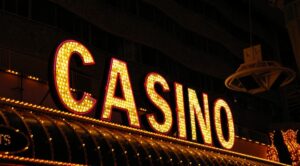 Online poker legislation has been one of the hottest trends in the state of California for quite some time now. The truth is that the online poker legislation issue has been on the agenda for about a decade now, with a series of long-lasting debates blocking the way of a special bill on the matter.
Online poker legislation has been one of the hottest trends in the state of California for quite some time now. The truth is that the online poker legislation issue has been on the agenda for about a decade now, with a series of long-lasting debates blocking the way of a special bill on the matter.
The difficulties, however, have not stopped lawmakers from trying to find a solution. So, a few days ago, the latest online poker bill on the matter, called AB 1677, was introduced to the state by the Assemblyman Reginald Jones-Sawyer.
Internet Poker Consumer Protection Act of 2016 Scope
The bill, also known as Internet Poker Consumer Protection Act of 2016, is focused on making online poker legal in the state of California as well as regulating it. What is more, the newly-introduced piece of legislation backed by Jones-Sawyer, would provide certain tribes and card rooms with the opportunity to offer online poker to players who are at least 21 years old within the state.
The online poker licences that could be issued to both tribes and card rooms would be seven-year ones. Under the AB 1677, they would be available at the cost of $12.5 million.
The major regulatory issues included in the bill are related to licences and permissions procedures, approvals of temporary, provisional and emergency operations, hardware and software standards and compliance, gaming system technical standards and good practices. In addition, AB 1677 also involves issues related to suitability standards and determinations, player disputes and complaints resolutions as well as appeals from adverse decisions, and possible effects of bankruptcy, inheritance, receiverships, etc. The Internet Poker Consumer Protection Act of 2016 is also focused on underage gambling and problem gambling and their prevention.
When it comes to the tax rates, the newly-introduced bill calls for a progressive one, that should be based on the cumulative gross gaming revenue of the industry as a whole.
When it comes to the tax rate charged on operators, the piece of legislation supported by Jones-Sawyer offers a progressive tax rate which would be based on the overall gross gaming revenue of the industry. Under the new provisions proposed, the tax rate would amount to 8.847% in case that the gross gaming revenues per year are smaller or equal to $150 million. If the annual gross gaming revenues amount to more than $150 million but they are smaller or equal to $250 million, the tax rate would be 10%. In case that the generated gross gaming revenue per year is in the range from over $250 million to 350 million, the tax rate percentage would amount to 12.5%. Tribes and card rooms that generate gross gaming revenues of over $350 million would be charges with a tax rate of 15%.
Racetracks Issues
What is specific about the AB 1677 is the fact that it is also focused on finding a certain balance and compromise when it comes to racetracks on the territory of the state. They would not be allowed to run online poker websites under the new piece of legislation, but as mentioned above, the Internet Poker Consumer Protection Act of 2016 tries to find a compromise by using the proposal made by Assemblyman Adam Gray in 2016.
Under the provisions of the new bill, the so-called California Horse Racing Internet Poker Account is planned to be created. The latter states that racetracks on the territory of California would be granted with an annual allowance which would amount to 95% of the first $60 million collected over the fiscal year. In addition, racetracks would be offered the chance to act as service providers, but the track would be supposed to receive no less than 50% of the revenue generated from the partnership between the track and the operator.
- Author


